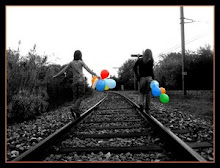 First, The Sunflower, by Simon Wiesenthal was a very interesting novel on the subject of Wiesenthal’s horrifying experience in the Holocaust. He is confronted with a life altering decision of forgiveness. Similarly, the issue of forgiveness is relevant in today’s society because people constantly make mistakes which require forgiveness. Whether or not a person forgives is entirely up to them and the circumstances of the situation. This book not only was an unforgettable tale but also it was series of interesting responses to the story. The responses in the book were filled with supportive statements and negative feedback. Overall, I would recommend this book in total to anyone who is interested in the Holocaust or just about life decisions.
First, The Sunflower, by Simon Wiesenthal was a very interesting novel on the subject of Wiesenthal’s horrifying experience in the Holocaust. He is confronted with a life altering decision of forgiveness. Similarly, the issue of forgiveness is relevant in today’s society because people constantly make mistakes which require forgiveness. Whether or not a person forgives is entirely up to them and the circumstances of the situation. This book not only was an unforgettable tale but also it was series of interesting responses to the story. The responses in the book were filled with supportive statements and negative feedback. Overall, I would recommend this book in total to anyone who is interested in the Holocaust or just about life decisions.
The second book I read was The Tortilla Curtain, by T.C Boyle. This book was a page turner as you journeyed with Candido and his wife America across the border into California. Yet the book only begins to get exciting when his “life” crashes into an upper-class white man’s car. From then on, both lives are intertwined until the final scene where even the most hateful thoughts for a person could be put a side. This book has tremendous relevance to the present day because illegal Mexican immigration is still a major issue. The final project I am going to complete is a research essay on Mexican immigration – which will include all the facts one needs to be savvy in this area. I recommend this book to students who enjoy reading. Although the book is a little long, it is a page turner so do not worry!
 The final novel I will comment on is Like Water for Chocolate by Laura Esquivel. This is a unique novel that entwines recipes and cooking into the daily life of the protagonist Tita. This is an original writing structure that I was impressed with. Not only did the recipes begin each chapter, but also they were woven into the chapter’s events. This book is an original but can be considered similar to some classics that we have read. The piece writing I am finishing at the moment is a further analysis of this book compared to Romeo and Juliet by William Shakespeare. Both have many similarities but I am not going into detail otherwise it will ruin the essay. I recommend this book to girls who want to read a very good novel that has an ending you will NEVER expect.
The final novel I will comment on is Like Water for Chocolate by Laura Esquivel. This is a unique novel that entwines recipes and cooking into the daily life of the protagonist Tita. This is an original writing structure that I was impressed with. Not only did the recipes begin each chapter, but also they were woven into the chapter’s events. This book is an original but can be considered similar to some classics that we have read. The piece writing I am finishing at the moment is a further analysis of this book compared to Romeo and Juliet by William Shakespeare. Both have many similarities but I am not going into detail otherwise it will ruin the essay. I recommend this book to girls who want to read a very good novel that has an ending you will NEVER expect.The next blogs on my readings will commence at the beginning of the final marking period. Till then I hope you enjoy my future blogs about topics that interest me.




























